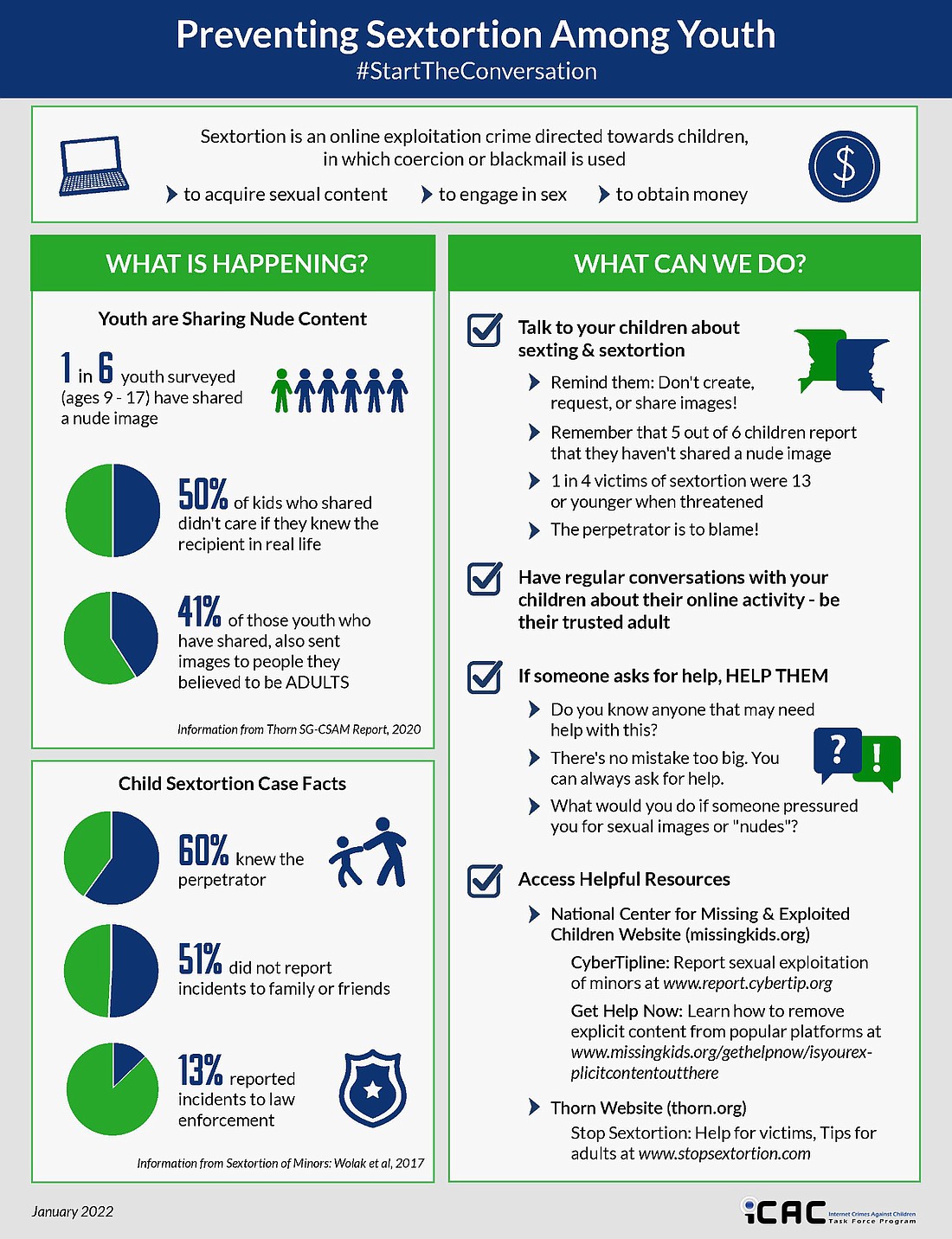May 18, 2023 at 3:12 p.m.
Ignoring all the weird and damaging stuff that can happen to a youngster using the Internet is not a strategy for success. The more curious you are about your child’s Snapchat or Tik Tok connections, the greater the frequency that you check their friends page and ask about who they communicate with, the less likely they are to become victims of sextortion. Millions of child Internet users are asked to send nude images of themselves, as predators get inside their heads. They are then threatened that the photos will be distributed to team members, sent schoolwide or to employers if they don’t pay money.
A crowd of about 100 parents, grandparents and guardians moved through three informational forums last week at Chisago Lakes High School. They heard the advice described above – and more — from information booths in the high school foyer where you could speak with law enforcement, therapists, and representatives from Lakes Center for Youth & Families and county public health.
The forums featured speakers on sextortion, on mental health milestones and vaping and drug use.
The target audience was anybody responsible for kids ages 8 to 17 providing resources on accessing help and information.
BCA agent Craig Martin and Chisago County Sheriff’s internet crimes against children investigator Pat Letourneau occupied the main stage for sextortion 101, along with Education Coordinator for the MN BCA Taylor Lambrecht.
Martin assured the audience their child will “100 percent” be solicited by a predator on-line. It’s how the youth responds that’s important. And, now is the time to think about how you will react.
Lambrecht said kids get cellphones, laptops and I-pads with no real instruction on how to use them and no description of the potential for harm.
Martin commended the local law police and sheriff's office for being open to coordinating and offering this forum. He said some locations decline the offer to put on an informational night because they don’t sanction talking about anything that may involve sex. “We’ve gotten pushback in other places,” Martin added.
According to Lambrecht, Snapchat is the most often used platform in cases she sees, where predators successfully seek and connect with vulnerable youth. But, they’re all potential sources...Instagram, TikTok, Whats App, etc.
Be mindful of what you post and how many details about your life you really want out there. The predator sees your kid in a team T-shirt and knows where they go to school and what sport they play. This is used to win over their trust as part of “grooming” for future demands.
You can put restrictions on platforms using Bark, Canopy and Google Lifelink. These will filter any reference to pornography, nude images and other language. However there are workarounds and any teen can google how to do this or watch YouTube and figure it out. Monitoring is a practice of constant vigilance for a few years of your kids’ life to protect them.
Likewise for Internet gaming. Chats among gamers can easily include predators pretending to be who they are not. Keep gaming devices in public spaces, and check on who is on the other end, people attending the forum were advised.
Make sure your youth understands to NEVER send compromising images over any device. Turn off devices with camera capability because they can be hacked and operated from afar.
And, should somebody break through and coerce your loved one into this dark world— the best place to start is to contact local law enforcement.
They can utilize a service to take down images if the subject is under age 18. (takeitdown.ncmec.com)
The state BCA got 9,000 tips on the cyber tipline last year and after screening for probable crimes against minors, they investigated about half, said Lambrecht.




Comments:
Commenting has been disabled for this item.